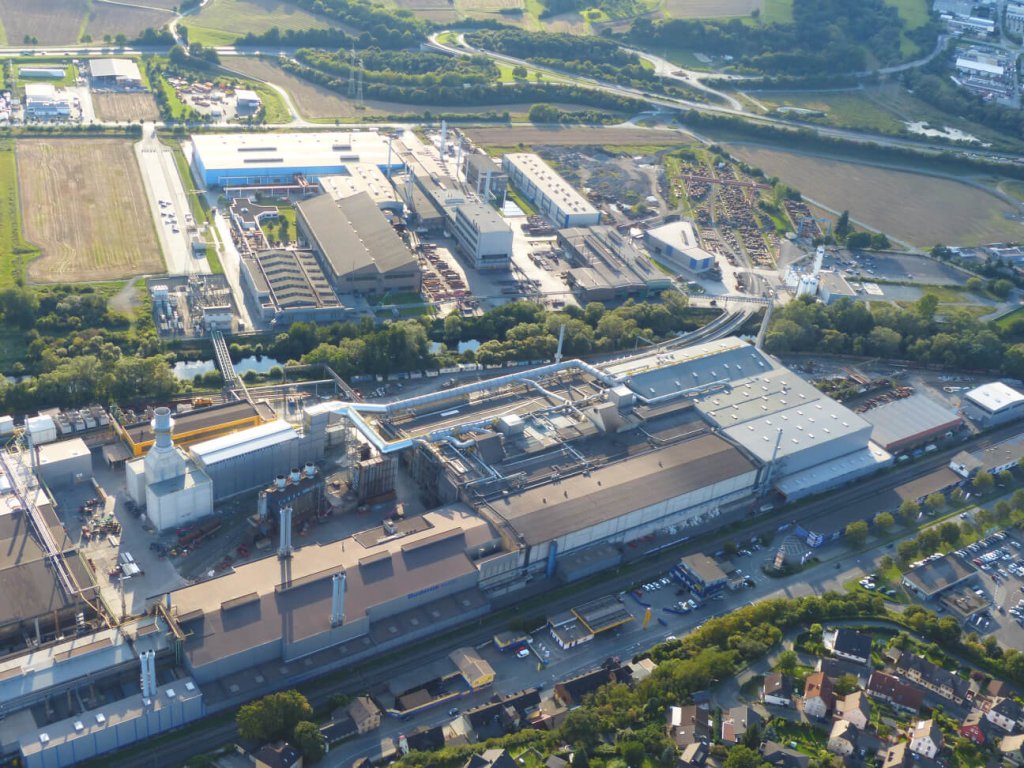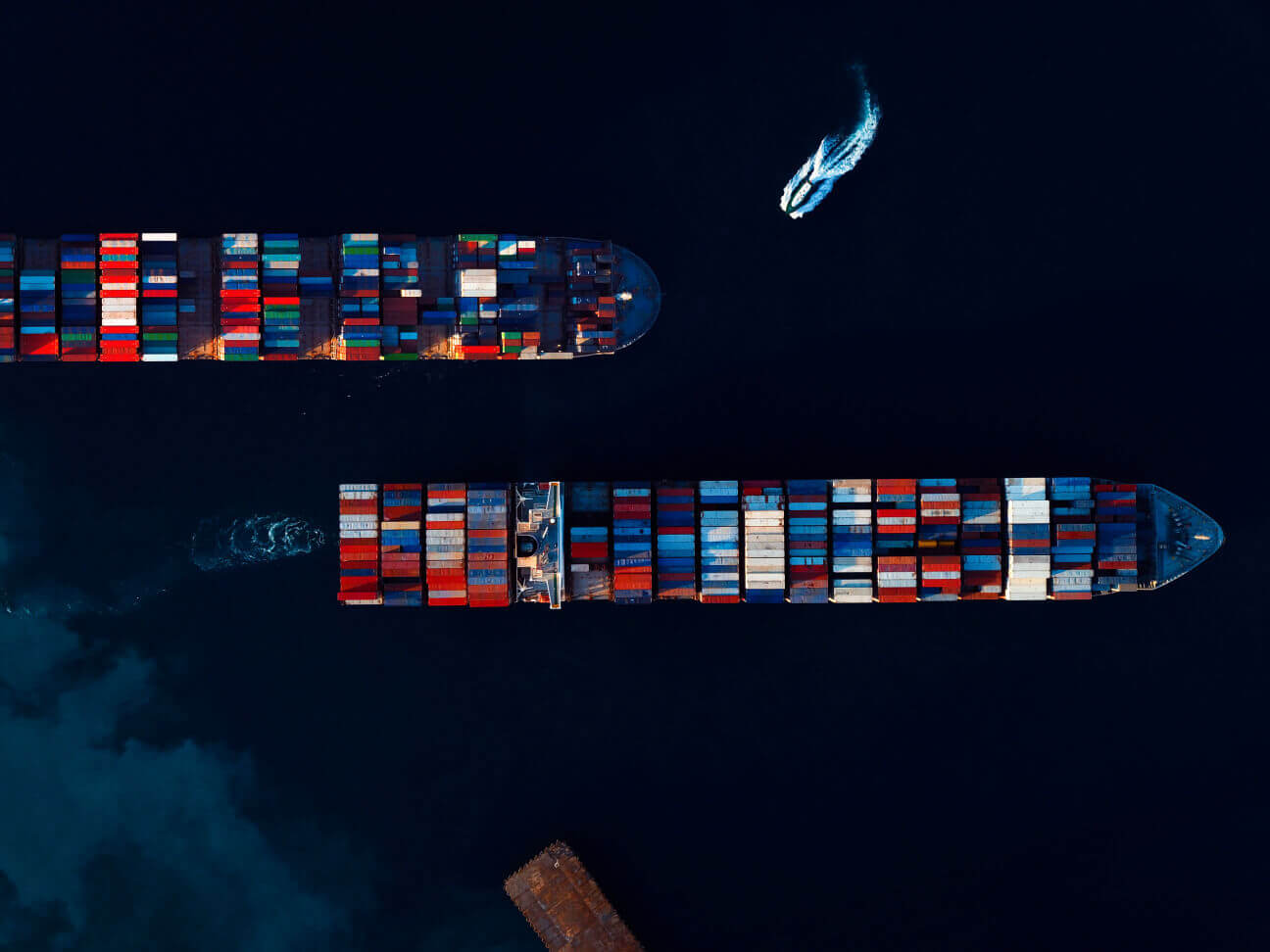ESG in our supply chain and the role of sustainable sourcing
Sustainable sourcing is much more than just an economic responsibility. When procuring raw materials, companies must ensure responsible corporate governance and respect for human rights, all the while striving for environmental protection. Raw materials usually travel a long way before they are used in production at the High Performance Metals Division (HPM)—both geographically and in terms of the value creation partners involved. In recent years, new regulations have been introduced around the world to protect the rights of people along this supply chain. One example is the German Act on Corporate Due Diligence Obligations (Lieferkettensorgfaltspflichtengesetz – LkSG), which has far-reaching effects on our daily processes. Find out how we are preparing for this and how Environmental, Social and Governance (ESG) criteria influence our collaboration with our suppliers.
MORE CARE IN THE SUPPLY CHAIN
The German Act on Corporate Due Diligence Obligations, or Supply Chain Act for short, has been in force since January 2023. As the name suggests, it regulates the due diligence of companies to ensure that both people and the environment are treated responsibly along the entire global supply chain—from the extraction of raw materials through all intermediate trade stages to final processing. It focuses on factors such as fair pay, preventing child labor, and addressing environmental concerns to protect human rights and human health.
This new law has been in force in Germany since 2023 for companies with more than 3,000 employees. From 2024, those with at least 1,000 employees will have to comply with its regulations. This means that by 2024 at the latest, around 5,700 companies in Germany, and their supply chains, will have to ensure they meet these legal requirements.[1]
PREPARATIONS AT BUDERUS EDELSTAHL
One voestalpine HPM Division subsidiary will also be subject to the LkSG from 2024. Buderus Edelstahl is based in Wetzlar and employs more than 1,000 people. Even before the new regulations came into force, we were already looking closely at our supply chains and will ensure that they are assessed against the new criteria.
At Buderus Edelstahl, we have already begun working toward implementing this law, with specific measures being implemented or planned. These include introducing a structured process for supplier risk classification that will lead to concrete action, a comprehensive Human Rights Policy to ensure human rights compliance in business processes, and a Human Rights Officer as the responsible point of contact.

CHANGES AT THE EUROPEAN LEVEL
With some parallels to the LkSG, the Corporate Sustainability Due Diligence Directive (CSDDD), or EU Due Diligence Directive for short, is currently being drafted at the European Union level. Upon its approval, this directive will be transposed into national law in all EU Member States within two years. By then at the latest, Buderus Edelstahl and the other companies in the HPM Division as well as from voestalpine Group will also be subject to its regulations regarding sustainability in the supply chain. The HPM Division can therefore view the implementation of the LkSG at Buderus Edelstahl as a kind of pilot project for the upcoming implementation of the CSDDD.
ESG: CORPORATE RESPONSIBILITY IN THREE AREAS
To meet these new requirements, we need to work closely with the suppliers along our supply chain. We keep regular contact with them so we can obtain all the information and data we need. We actively question suppliers about compliance with human rights in their areas of activity. We also survey environmental aspects and their plans for decarbonization. This self-assessment helps us to better assess suppliers in terms of sustainability.
The criteria are based on an ESG framework. ESG stands for environment, social and governance in the sense of (corporate) management. The defined criteria are therefore used to check how companies are positioned in the areas of social and environmental sustainability, whether sustainability is integrated into corporate management, and what ESG measures the companies have already taken or will take.
WE SCREEN OUR SUPPLIERS ACCORDING TO ESG CRITERIA
In our previous article on sustainable sourcing, we provided an overview of our principles of sustainable procurement.
To ensure ESG compliance along the entire supply chain, we have defined criteria that we review our suppliers against. We primarily use two tools to evaluate our suppliers:
- The voestalpine Code of Conduct for Business Partners, with its reference to the voestalpine Human Rights Guidelines, is an important instrument. When suppliers sign this document, they agree to our conditions and confirm that they meet our sustainability expectations.
- We have also introduced a standardized self-assessment questionnaire, the Group-wide Corporate Responsibility and Compliance Checklist. A risk filter system has been developed to identify suppliers that pose a potential risk to the sustainability of our supply chain. We also prioritize all suppliers within HPM and check those with priorities 1 and 2 using the corporate responsibility checklist.
PRIORITIZATION: HOW AT RISK ARE SUPPLIERS?
We prioritize suppliers based on supplier risk as defined by the risk filter. This filter is used throughout the Group to ensure uniform assessment. It is made up of two overarching criteria: product group risk and country of origin. Product group risk includes ecological and social criteria as well as issues of importance for stakeholders.
Suppliers can be assessed based on two overarching criteria and divided into three priority groups:
- The lowest priority group (priority 3) includes suppliers with a low risk level in both criteria.
- Medium priority (priority 2) is assigned to suppliers that either deal with high-risk product groups or come from high-risk countries of origin.
- The highest priority group (priority 1) is made up of suppliers of high-risk raw materials from high-risk countries of origin.
Our suppliers are reviewed on a regular basis. This allows us to react to any changes and developments.
ESCALATION PROCESS IN THE EVENT OF NON-COMPLIANCE
If our criteria are not met, there is an escalation process. In the first step, we talk to suppliers whenever we identify gaps in our requirements based on their self-disclosure. In these meetings, we discuss the problem and possible measures to resolve it. We take this approach to avoid immediately excluding important and sometimes long-standing HPM suppliers, and to motivate them to integrate higher sustainability standards. This way, we can work with them toward achieving a more sustainable supply chain.
As part of the escalation process, on-site inspections can also be carried out at the supplier’s premises to get a picture of the situation on the ground. If the jointly defined corrective measures are still not in place, the supplier could be excluded from HPM and the entire Group.
SUPPORT FOR AND COOPERATION FOR OUR PLANTS
As well as complying with statutory and Group-internal minimum standards, we also drive forward our own division projects under the Sustainable Sourcing Pillar. This allows us to act as a direct point of contact and support our plants as they implement various measures to meet requirements. We don’t just see ourselves as a team within the framework of inSPire. Rather, we work together with those responsible in the production companies. During regular meetings and on-site visits, we exchange views on sustainability issues, discuss problem areas together, and develop new ideas and possible measures. Collaboration is not just a theory for us, but is practiced daily as part of inSPire.
OVERARCHING CHANGES
The concepts of ESG and sustainability in the supply chain are still relatively new and subject to constant change. Many regulations and laws, such as the CSDDD, are still in development. However, the importance and far-reaching effects of new sustainability regulations and the social interest in them are already undeniable. Many opportunities exist for our division and for the voestalpine Group to gain experience in these areas and to set up and improve processes in pilot projects before these are rolled out more widely later—as in the case of the implementation of the German Supply Chain Act at Buderus Edelstahl. For all innovations, we rely on the close cooperation of our suppliers, business partners, and coworkers within the Group. Only through cooperation and willingness to change from all involved can global supply chains be made more sustainable and human rights more firmly anchored.

[1] vgl. Bundesministerium für wirtschaftliche Zusammenarbeit und Entwicklung (2023). Das Lieferkettengesetz. https://www.bmz.de/de/themen/lieferkettengesetz/
